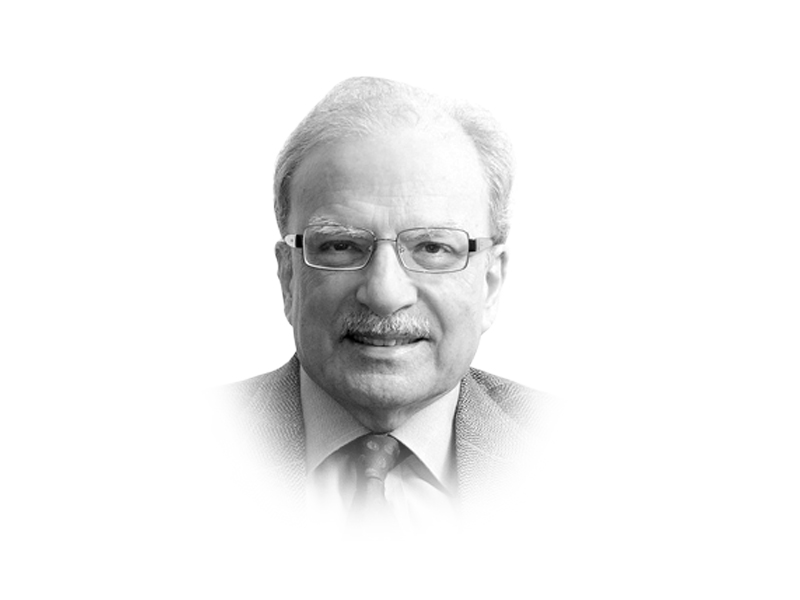
The poor and the deprived don’t look at Gini coefficients; they see what is occurring around them. What they see is lavish consumption. Let us look at just one example of this. The string of wedding halls in Lahore Cantonment’s Garrison Club are lit up even when the city’s lights are down and are often referred to as the Punjab capital’s Las Vegas strip. This does not go unnoticed by those who have to deal with high rates of food inflation, irregular supply of gas and electricity, and lack of job opportunities. There cannot be any doubt that this attracts the poor and the unemployed to the ranks of the terrorists. If the economy does not reward the poor, some of them are likely to vent their frustration by resorting to violence.
Extremism and associated terrorism has produced a vicious cycle. One interesting insight on this is provided by the economists Samuel Bowles and Arjun Jayadev. While their work is concerned with developed countries, some of its conclusions apply to countries like Pakistan that are faced with a serious security problem. These analysts correlated inequality with the number they call ‘guard labour’. They matched guard labour per 10,000 workers with the incidence of inequality. Their main finding: “However one totes up guard labour in the US, there is a lot of it, and it seems to go along with economic inequality. States with high levels of income inequality employ twice as many security workers as less unequal states. When we look across more advanced industrialised countries, we see the same pattern: the more inequality the more guard labour. Social spending, also, is strongly correlated with guard labour across the nations. There is a simple economic reason here: A nation whose policies result in substantial inequalities may end up spending more on guns and getting less butter as a result.” The US, with a Gini coefficient of 0.35, has the highest income inequality among developed countries. Denmark with 0.23 and Sweden with 0.24 have the lowest. The US at 160 guard labour per 10,000 workers has the highest ratio among this group of nations. Sweden with 55 has the lowest.
This pattern is also evident in Pakistan. There are no firm estimates for the number of people in Pakistan’s workforce who belong to guard labour. They are to be seen everywhere in all large cities. In addition to the check points on the roads, gated communities protected by their own guards are becoming a common sight. Guard labour does not add to the economy’s overall productivity and efficiency. The larger the proportion of people hired by security firms, the lower the number going into productive economic activities. An economy develops when the workers engaged in low-productivity activities move to those that are more efficient in terms of the contribution they make to the economy. This is one other way in which terrorism is hurting the economy. There are good reasons why policymakers must see extremism as a serious economic issue. Bringing sustained growth to the economy and distributing its rewards evenly among the country’s different segments and regions must rank high on the policymakers ‘to do’ list.
Published in The Express Tribune, February 24th, 2014.
Like Opinion & Editorial on Facebook, follow @ETOpEd on Twitter to receive all updates on all our daily pieces.
COMMENTS (7)
Comments are moderated and generally will be posted if they are on-topic and not abusive.
For more information, please see our Comments FAQ

1722586547-0/Untitled-design-(73)1722586547-0-165x106.webp)


1732326457-0/prime-(1)1732326457-0-165x106.webp)








You are going back to the question of the Chicken and the Egg, which comes first. Economic activity cannot be fast tracked without controlling the security situation and security situation cannot improve without controlling the flow of citizens taking up Jihad. Without taking on armed extremists the country does not have a bright future. Dodging this issue as has been happening for decades has not helped the problem vanish. Every other issue can only come later. If after such colossal loss of lives the country cannot prioritize, it reflects on the intelligence and capability of rulers to stop the rot. We have still not stepped into the realms of will and conviction yet.
At the face if it, seems logical to assume that inequality (poverty) leads to extremism. But what explains terrorism emanating from rich states like Saudi Arabia and well off middle class? OBL was wealthy, Zawahiri is a professional doctor! Why are the affluent taken in by the self righteousness of the faithful, mind mumbling conspiracies, false history and perpetual victim hood?